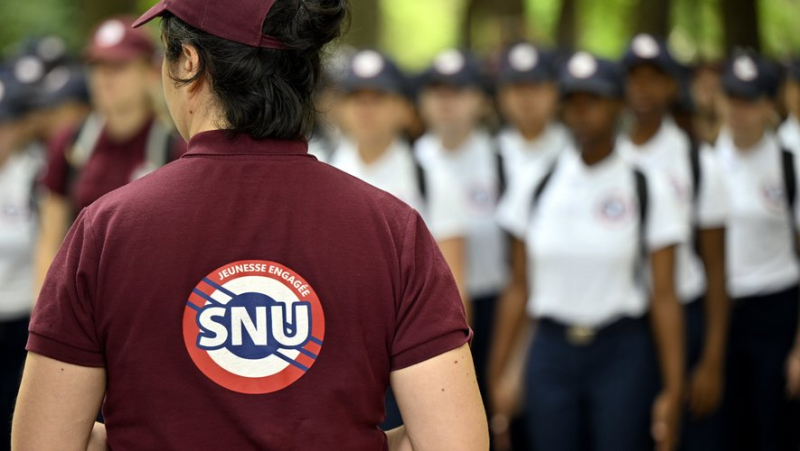Age, obligation, generalization… In the end, what will the universal national service wanted by Emmanuel Macron ? look like?

En 2023, 40 000 jeunes ont participé au service national universel (SNU). ILLUSTRATION MAXPPP – Alexandre MARCHI
Le président Emmanuel Macron a réaffirmé lors de son intervention télévisée de mardi 16 janvier sa volonté de rendre le service national universel (SNU) obligatoire en classe de seconde. Voici en quoi il devrait consister.
Will the universal national service (SNU) for secondary school students be generalized ? This is in any case the wish of President Emmanuel Macron, as he puts it ;said during his press conference on Tuesday, January 16.
For high school students in second grade
Campaign promise from the Head of State, the SNU is aimed at young high school students between 15 and 17 years old enrolled in second grade. It is divided into two stages and includes a two-week cohesion stay outside the department of residence, all costs covered. The objective according to the government: to promote a feeling of national unity around the common values of citizenship, commitment and social cohesion.
The second phase consists of a "mission of general interest"of twelve consecutive days (or 84 hours in the year), such as solidarity missions, help for vulnerable groups, heritage restoration projects, organization of a cultural or sporting event, etc.
40,000 participants in 2023
The system also offers young people aged 16 to 25 the opportunity to join the armed forces (active or reserve) or in a civic service mission. Since January 1, 2024, if a young person chooses to do civic service within the framework of the SNU, their monthly allowance is 619.83 euros compared to 609.95 euros previously. In the event of an international mission, the compensation received by volunteers is 558.17 euros.
In 2023, 40,000 young people participated in the SNU. A figure that the government wants to see double in 2024, before making the system compulsory in the coming years. If widespread, there could be 600,000 to 800,000 adolescents taking part.
Criticisms and obstacles
Before making the SNU compulsory, the government will have to confront several logistical and financial obstacles. As Europe 1 points out, it will be necessary to find accommodation sites, trained supervisors, or even ensure the transport of young people across France in the aim of ensuring true social and geographical diversity, as the system aims to achieve.
A parliamentary report published in October by the environmentalist MP Jean-Claude Raux highlights the "unreasonable financial burden" of such a device, estimated at at least 2 billion euros. To this sum must be added that of the infrastructures which could increase the bill to " fifteen billion euros,” specifies the ecologist.
Details to come
This upcoming generalization must be part of a set of measures aimed at young people, specified the Head of State. Announcements should be made to this effect "in the coming weeks".




